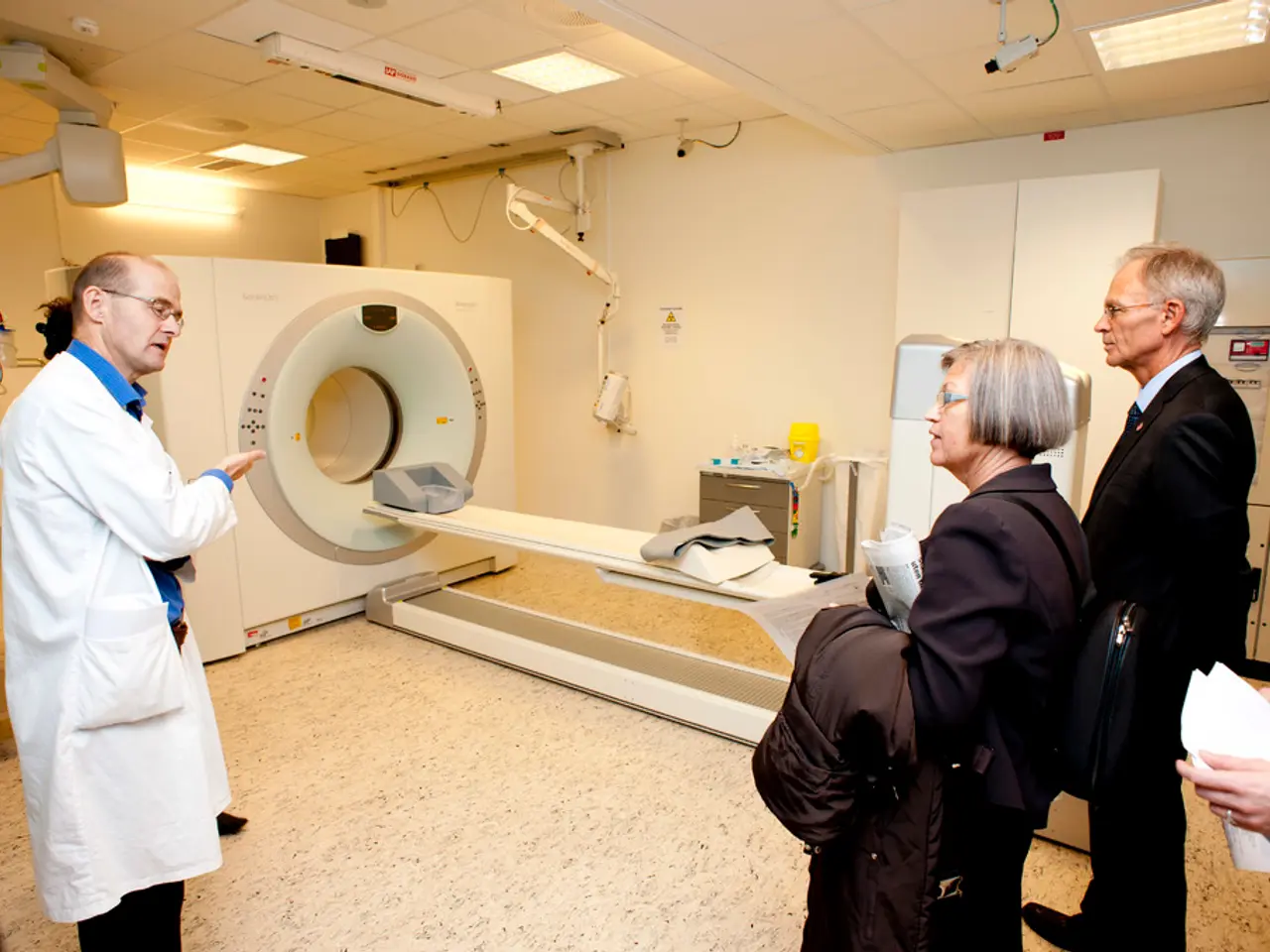Experiencing Morning Chest Discomfort: Exploring Potential Causes, Recognizing Symptoms, and Seeking Treatment
Chest pain that occurs during sleep can be a cause for concern, as it may stem from various conditions, both cardiac and non-cardiac. Here's a comprehensive overview of common causes, symptoms, and treatment options:
## Common Causes
1. **Heart-Related Conditions:** Heart failure, a condition where fluid builds up in the lungs, can lead to paroxysmal nocturnal dyspnea (PND), characterized by sudden awakenings with shortness of breath and coughing. Sleep position can also exacerbate heart failure symptoms.
2. **Respiratory Conditions:** Nocturnal asthma and Chronic Obstructive Pulmonary Disease (COPD) are common culprits, causing symptoms to worsen at night, including wheezing, coughing, and chest tightening.
3. **Digestive Issues:** Gastroesophageal Reflux Disease (GERD) can cause chest pain and discomfort when lying down due to acid from the stomach flowing backward into the esophagus.
4. **Musculoskeletal and Anxiety-Related Causes:** Musculoskeletal pain, tight muscles, or strain can cause chest discomfort, while stress and anxiety can lead to chest pain, often mimicking more serious conditions.
## Symptoms
- **Chest Pain or Discomfort:** Ranging from sharp to dull and squeezing. - **Shortness of Breath:** Common in heart failure and respiratory conditions. - **Coughing:** Often seen in asthma and COPD. - **Panic or Anxiety:** Symptoms can include rapid heartbeat and chest tightness.
## Treatment Options
1. **Cardiac Conditions:** Management includes diuretics, ACE inhibitors, and beta-blockers to reduce pulmonary congestion. Elevating the head of the bed can also help.
2. **Respiratory Conditions:** Medications to reduce inflammation and improve airflow, along with breathing exercises, are common treatments.
3. **Digestive Issues:** Dietary modifications, antacids, and elevating the head of the bed can help alleviate symptoms of GERD.
4. **Musculoskeletal and Anxiety-Related Causes:** Rest, heat or ice application, and over-the-counter pain relievers can help with musculoskeletal pain. Cognitive-behavioral therapy, mindfulness, and medication for anxiety if necessary can help manage anxiety and panic attacks.
It is crucial to seek immediate medical attention if experiencing sudden or severe chest pain, as it may indicate heart conditions such as coronary artery disease, heart inflammation, or heart attack. Other conditions like pulmonary embolism, pneumothorax, pericarditis, myocarditis, and peptic ulcer can also present with chest pain.
Treatment options for digestion-related chest pain include medications such as H2 blockers, antacids, proton pump inhibitors, and antibiotics if a specific bacterial infection is present. Costochondritis, inflammation of the cartilage that connects a rib to the sternum, can also cause chest pain. Endocarditis, inflammation of the endocardium, requires medical attention and often involves antibiotics and surgery.
Always consult a healthcare professional if experiencing chest pain, especially if it is sudden, severe, or accompanied by other symptoms such as shortness of breath, dizziness, or nausea.
- Non-Cardiac Conditions: Colitis, an inflammatory bowel disease, can lead to abdominal pain and discomfort that radiates to the chest.
- Autoimmune Conditions: Psoriatic arthritis, a type of arthritis that affects people with psoriasis, can cause joint pain, swelling, and stiffness in the morning, potentially leading to chest pain. Ankylosing spondylitis, another form of arthritis, can cause chronic inflammation in the spine and sacroiliac joints, leading to chest discomfort.
- Diseases of the Eye: Macular degeneration, a type of degenerative eye disease associated with aging, can increase the risk of other conditions, such as cardiovascular health problems and obesity.
- Predictive Factors: Obesity, type 2 diabetes, and a family history of heart disease can serve as indicators and risk factors for developing various health-related conditions, including heart disease, cardiovascular health problems, and sleep apnea, which can cause chest pain.
- Mental Health Conditions: Bipolar disorder, migraines, and anxiety can interfere with sleep and lead to chest pain due to the psychological and physical stress they create.
- Viral and Bacterial Infections: HIV, although manageable with antiretroviral therapy, can cause chest pain due to opportunistic infections and other complications. Peptic ulcers, caused by Helicobacter pylori bacteria, can cause abdominal pain that radiates to the chest, leading to a dry cough and indigestion.
- Aging-Related Conditions: Degenerative disk disease, a condition that causes the protective cartilage between the vertebrae to deteriorate, can cause pain and discomfort that travels to the chest.
- Other Autoimmune Disorders: Crohn's disease and ulcerative colitis, types of inflammatory bowel disease, can lead to abdominal pain, cramping, and discomfort, potentially causing chest pain and shortness of breath.
- Science and Research: Ongoing research in the field of medical-conditions and health-and-wellness is aimed at developing new treatments and understanding the underlying causes of chest pain, with a growing emphasis on preventative measures and holistic approaches to patient care.




